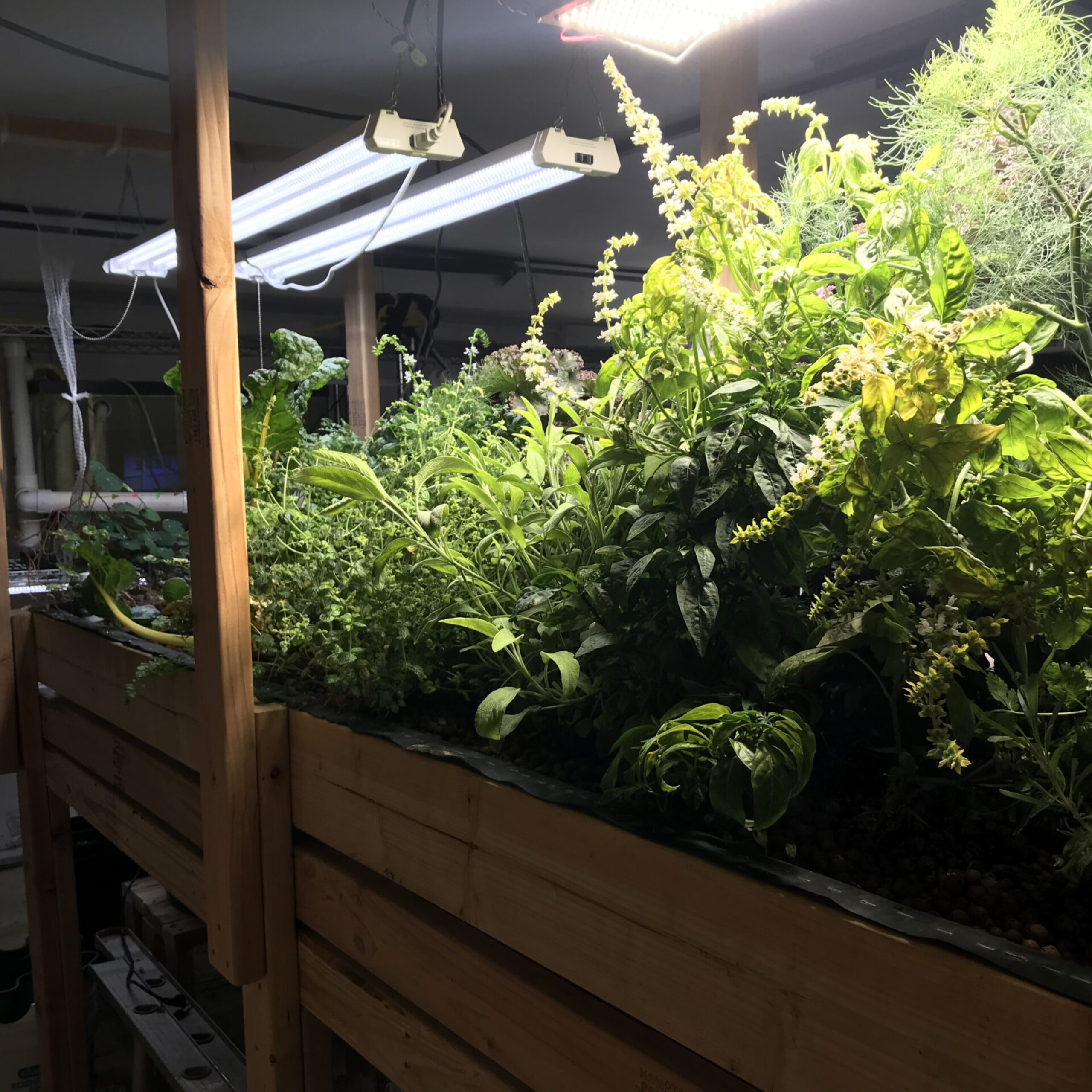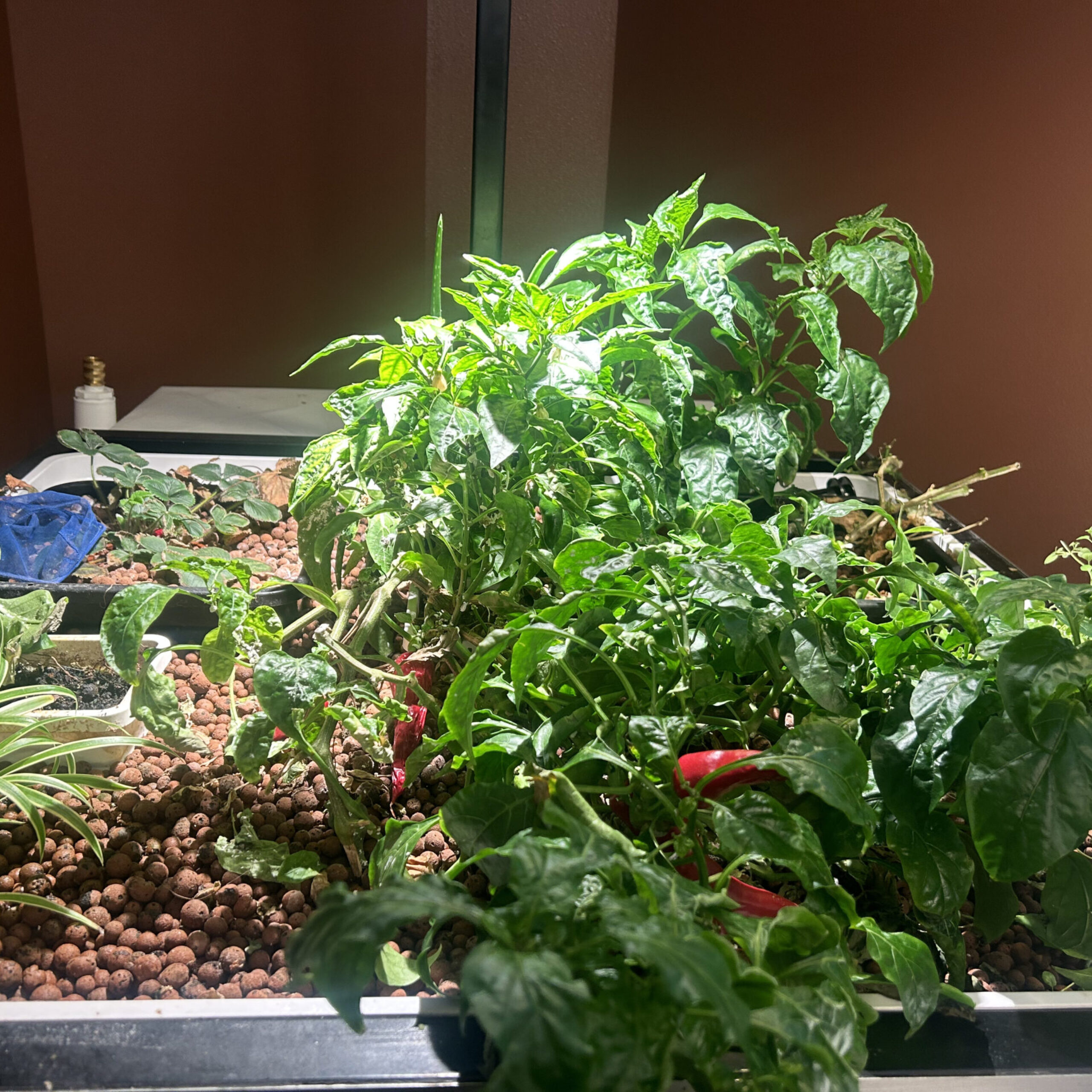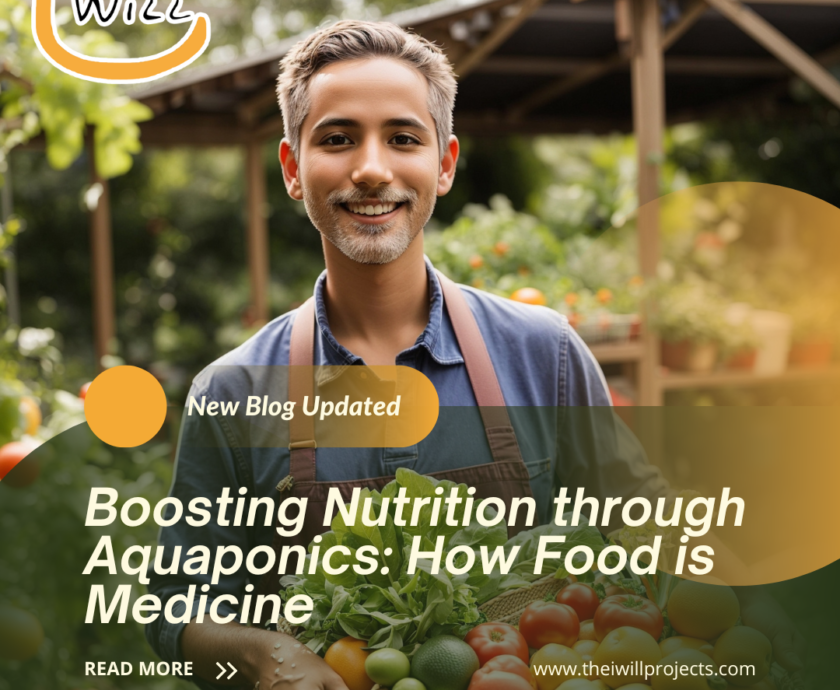“The doctor of the future will no longer treat the human frame with drugs, but rather will cure and prevent disease with nutrition.” — Thomas Edison
TweetTable of contents
Introduction – Veggies: Your Vitality Boosters
When it comes to achieving optimal health and vitality, vegetables are your best allies. Packed with essential nutrients, antioxidants, and health-promoting compounds, veggies offer a natural way to fuel your body, improve energy levels, and support overall well-being.
Whether you’re aiming for better mental clarity, enhanced physical performance, or improved immune function, vegetables are the vitality boosters you need to unlock your body’s full potential.
A vegetable-rich diet has long been associated with improved energy and vitality.
These powerhouse foods are nature’s most efficient source of vitamins, minerals, fiber, and antioxidants—essential components that contribute to a vibrant, energetic life.
With the modern world’s stressors and the fast-paced demands of daily life, it’s more important than ever to rely on a natural, wholesome way to stay energized. Fortunately, vegetables provide a simple, accessible solution to achieving this balance.
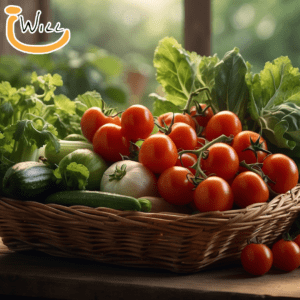
What Does Vitality Really Mean?
Vitality goes beyond merely being alive. It encompasses the feeling of physical energy, mental sharpness, and an overall sense of well-being.
When someone has vitality, they often exhibit a robust immune system, a quick recovery from illness or fatigue, and the mental acuity to handle stress effectively.
Essentially, vitality is a state of thriving, not just surviving.
To experience vitality, the body needs a continuous supply of key nutrients that support energy production, cellular health, and efficient metabolic processes.
Vegetables, with their diverse nutrient profiles, serve as an excellent source of this essential fuel. From leafy greens to root vegetables, these plant-based foods provide the necessary building blocks for sustained energy and health.
How Vegetables Enhance Vitality
The secret to the vitality-boosting power of vegetables lies in their rich content of vitamins, minerals, fiber, and antioxidants. These components work synergistically to:
- Increase energy: Many vegetables, particularly green and leafy varieties, are rich in iron, magnesium, and B-vitamins. These nutrients are crucial for cellular energy production, ensuring that your body functions efficiently.
- Support digestive health: The fiber in vegetables helps maintain a healthy gut, which is integral to nutrient absorption and overall vitality. A well-functioning digestive system ensures that the body gets the nutrients it needs to stay energized.
- Detoxify the body: Cruciferous vegetables like broccoli, kale, and cauliflower contain compounds that support liver detoxification, helping the body rid itself of toxins and maintain energy levels.
- Boost immunity: Vegetables such as carrots, spinach, and bell peppers are loaded with antioxidants, particularly vitamin C, which helps strengthen the immune system, reducing the risk of illness and promoting vitality.
Nutrient-Rich Veggies for Energy
Some vegetables stand out for their ability to naturally boost your energy levels. Here are a few top picks:
- Spinach: High in iron, spinach helps the body produce red blood cells, which are essential for delivering oxygen to tissues, thus reducing fatigue and increasing stamina.
- Sweet Potatoes: These root vegetables are a great source of complex carbohydrates and fiber, providing sustained energy release over time, making them perfect for both mental and physical endurance.
- Beets: Known for enhancing blood flow, beets improve oxygen delivery to muscles, boosting physical performance and endurance.
- Broccoli: Packed with vitamin C and fiber, broccoli supports immunity and digestive health, which are key to maintaining long-term vitality.
- Kale: This leafy green is an excellent source of vitamins A, C, and K, along with iron and fiber. It helps detoxify the body while providing energy through its rich nutrient content.
Fiber Power: Why It’s Crucial
Fiber is one of the most underrated components of vitality, yet it plays an essential role in maintaining energy and overall health. Found abundantly in vegetables like carrots, peas, and broccoli, fiber aids in:
- Regulating digestion: It keeps the digestive system running smoothly, which is essential for nutrient absorption.
- Maintaining stable blood sugar levels: By slowing down the digestion of carbohydrates, fiber helps prevent spikes and crashes in blood sugar, ensuring consistent energy throughout the day.
- Supporting a healthy gut microbiome: A high-fiber diet feeds beneficial gut bacteria, which play a key role in immunity, digestion, and even mental health.
The next time you’re looking to increase your vitality, consider the fiber content of your diet. A high-fiber vegetable intake can help you maintain energy levels, reduce cravings, and keep your digestive system in top shape.
Green Vegetables: The King of Vitality
When it comes to vitality-boosting foods, green vegetables reign supreme. These powerhouse plants are loaded with chlorophyll, antioxidants, vitamins, and minerals that support nearly every function in the body.
Spinach, kale, and Swiss chard are just a few examples of nutrient-dense greens that can elevate your energy levels and overall health, making them true vitality boosters.
Green vegetables are particularly rich in magnesium, a mineral essential for muscle function, nervous system regulation, and energy production.
Magnesium deficiency is common in modern diets, leading to symptoms such as fatigue, muscle cramps, and irritability.
Adding a healthy serving of green vegetables to your meals can help ensure that your body gets enough of this vital nutrient, contributing to sustained energy and vitality.
Cruciferous Vegetables: Detoxifying Power
Cruciferous vegetables—such as broccoli, cauliflower, and cabbage—are not only rich in nutrients but also contain powerful compounds like sulforaphane, which supports the liver’s detoxification processes.
Detoxification is critical for vitality, as it allows the body to remove harmful toxins that can slow down metabolism, impair immune function, and sap energy.
By supporting the body’s natural detoxification pathways, cruciferous vegetables help ensure that your system stays clean and efficient, allowing you to maintain higher energy levels and better overall health.
Root Vegetables: The Energy Storehouse
Root vegetables like carrots, beets, sweet potatoes, and parsnips are nature’s energy stores. These vegetables grow underground, absorbing an abundance of nutrients from the soil, which is why they are often packed with vitamins, minerals, and complex carbohydrates.
Root vegetables provide long-lasting energy, as their carbohydrates are digested slowly, ensuring a steady release of glucose into the bloodstream. This slow digestion helps prevent energy crashes and keeps you feeling fuller for longer.
Carrots, rich in beta-carotene (a precursor of vitamin A), are excellent for maintaining good vision and immune health, both of which are vital for overall well-being.
Beets, on the other hand, are renowned for their high nitrate content, which can help improve blood flow and oxygen delivery to muscles, making them a favorite among athletes.
Sweet potatoes, a powerhouse of vitamin C, manganese, and fiber, are especially good for those looking for sustained energy throughout the day.
The vibrant color of root vegetables often hints at their nutrient density, making them essential vitality boosters in your diet.
Leafy Greens: Iron and Energy
Iron is a crucial component for maintaining energy levels, as it helps the body produce hemoglobin, the protein responsible for carrying oxygen in the blood.
Many leafy green vegetables, such as spinach, Swiss chard, and kale, are excellent sources of iron, especially when paired with vitamin C-rich foods, which enhance iron absorption.
Iron deficiency is one of the most common nutritional deficiencies worldwide, often leading to fatigue and decreased vitality.
Including iron-rich greens in your daily meals can prevent this and ensure that your body has the oxygen it needs for energy production and optimal function.
Additionally, these leafy greens contain other essential nutrients like calcium, magnesium, and potassium, which support bone health, muscle function, and electrolyte balance, making them indispensable for maintaining vitality.
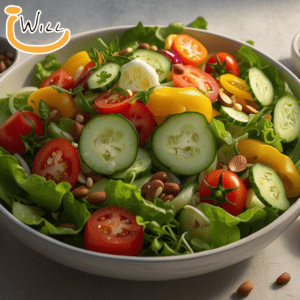
Vitamins and Minerals in Vegetables
The vitamins and minerals found in vegetables are the foundation of a vibrant life.
From vitamin A to zinc, vegetables provide the necessary nutrients that help your body function at its best. Here’s a look at some of the key vitamins and minerals you’ll find in vegetables and how they contribute to your vitality:
- Vitamin C: Found in bell peppers, broccoli, and kale, vitamin C supports immune function, collagen production, and skin health.
- Vitamin A: Carrots, sweet potatoes, and spinach are rich in beta-carotene, which the body converts to vitamin A, essential for vision, immunity, and skin health.
- Magnesium: Found in leafy greens and beans, magnesium is vital for muscle relaxation, nerve function, and energy production.
- Potassium: Potatoes, tomatoes, and beets are rich in potassium, which helps maintain electrolyte balance, nerve function, and muscle contraction.
- Folate (Vitamin B9): Crucial for DNA synthesis and cell repair, folate is found in leafy greens like spinach and romaine lettuce.
Incorporating a wide variety of vegetables ensures you receive a comprehensive range of vitamins and minerals, supporting your overall vitality and energy levels.
Hydration and Vitality: The Water Content in Veggies
Did you know that vegetables are not only packed with nutrients but also with water?
Hydration is a key component of vitality, and vegetables like cucumbers, celery, tomatoes, and zucchini are excellent sources of water.
Keeping your body hydrated is essential for maintaining energy levels, cognitive function, and overall well-being.
Vegetables with high water content are not only refreshing but also help maintain electrolyte balance, reduce bloating, and aid in digestion.
Eating water-rich vegetables alongside drinking plenty of water ensures your body stays hydrated, which is particularly important for cellular function and physical stamina.
Antioxidants in Vegetables: The Vitality Protectors
Antioxidants, these powerful compounds protect your cells from oxidative stress caused by free radicals, which can damage your cells and lead to fatigue, aging, and a variety of diseases. Vegetables, especially those rich in vibrant colors, are loaded with these natural vitality boosters like flavonoids, polyphenols, and carotenoids.
For example, tomatoes are rich in lycopene, a powerful antioxidant known for protecting the skin from damage and promoting heart health.
Spinach and kale contain lutein and zeaxanthin, which protect your eyes and improve visual health.
Bell peppers are loaded with vitamin C, another potent antioxidant that helps reduce inflammation and boost immunity.
By incorporating a variety of antioxidant-rich vegetables into your diet, you can combat oxidative stress and keep your energy levels high, promoting long-term vitality.
The Vitality Boost from Colorful Vegetables
The phrase “eat the rainbow” has become popular for good reason. Colorful vegetables provide a variety of nutrients and health benefits that contribute to your overall vitality. Each color represents different plant compounds, antioxidants, and nutrients that serve specific functions in the body.
- Red vegetables like tomatoes and red bell peppers are rich in lycopene, which is great for heart health and protecting against UV damage.
- Orange vegetables such as carrots and sweet potatoes are full of beta-carotene, which supports eye health and immune function.
- Yellow vegetables like squash and yellow bell peppers provide antioxidants that support skin health and fight inflammation.
- Green vegetables like spinach and broccoli contain chlorophyll, vitamins, and minerals essential for detoxification and energy production.
- Purple vegetables such as eggplant and purple cabbage are rich in anthocyanins, which help protect the heart and improve cognitive function.
Eating a variety of colorful vegetables ensures that you get a broad spectrum of nutrients that boost vitality, support your immune system, and help prevent chronic diseases.
Crucial Role of Phytochemicals
Phytochemicals, natural compounds found in plants, have emerged as significant vitality boosters. These compounds, while not considered essential nutrients like vitamins and minerals, play a critical role in promoting health and protecting against disease.
Phytochemicals like flavonoids, carotenoids, and polyphenols have powerful antioxidant, anti-inflammatory, and detoxifying properties.
For example, the sulforaphane in cruciferous vegetables like broccoli helps the body detoxify harmful substances, while quercetin found in onions and apples can reduce inflammation and support heart health.
Consuming a diet rich in phytochemicals from vegetables can reduce the risk of chronic diseases such as heart disease, diabetes, and cancer, all of which are vital for maintaining long-term energy and vitality.
Immune System Support from Vegetables
Vegetables play a significant role in strengthening the immune system.
By providing the body with essential nutrients like vitamin C, vitamin A, and zinc, they help the body fend off infections and illnesses.
Strong immunity is key to maintaining vitality because a healthy immune system allows your body to fight off infections efficiently, keeping you energized and healthy.
Garlic, for example, has been used for centuries for its immune-boosting properties. Rich in sulfur compounds, it can stimulate immune cells and improve the body’s ability to fight infections.
Similarly, vegetables like broccoli and spinach, packed with vitamins and antioxidants, can help enhance immune function and protect the body from oxidative damage.
Protein-Packed Veggies for Strength
While many people associate protein with animal products, several vegetables provide plant-based protein that contributes to muscle strength and overall vitality.
Legumes such as lentils, chickpeas, and peas are particularly rich in protein and fiber, offering sustained energy and muscle repair.
Other high-protein vegetables include edamame, broccoli, and Brussels sprouts.
These vegetables not only provide protein but also come with the added benefits of vitamins, minerals, and fiber, making them a complete food for promoting both strength and vitality.
Veggies for Mental Vitality
In addition to boosting physical energy, vegetables can also enhance mental vitality, acting as nature’s vitality boosters for your brain.
The brain requires a constant supply of nutrients to function optimally, and vegetables provide the perfect fuel.
Rich in antioxidants, vitamins, and healthy fats, certain vegetables can improve memory, focus, and cognitive function.
For instance, leafy greens like spinach and kale are excellent sources of folate and vitamins that support brain health.
Avocados, which are technically a fruit but often used as a vegetable, are rich in healthy fats that nourish the brain and enhance cognitive function.
Beets increase blood flow to the brain, improving mental clarity and focus.
By including these brain-boosting vegetables in your diet, you can enhance both your mental and physical vitality.
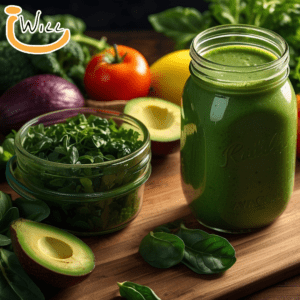
How to Incorporate More Veggies Into Your Diet
Incorporating more vegetables into your diet doesn’t have to be difficult. Here are some simple strategies to add more veggies to your meals:
- Smoothies: Blend spinach, kale, or avocado into your morning smoothie for a nutrient boost.
- Salads: Make colorful salads with a mix of greens, carrots, beets, and peppers for a vibrant, nutrient-packed meal.
- Soups: Add vegetables like carrots, zucchini, and tomatoes to your soups for extra nutrition.
- Roasting: Roast vegetables like sweet potatoes, broccoli, and Brussels sprouts with olive oil and spices for a delicious side dish.
- Stir-fries: Combine a variety of vegetables like bell peppers, snap peas, and mushrooms in a quick stir-fry for a nutritious meal.
By following these tips, you can easily increase your daily vegetable intake and enjoy the health and vitality benefits they offer.
Best Cooking Methods to Retain Nutrients
Cooking vegetables can sometimes lead to nutrient loss, but choosing the right methods can help retain those vital nutrients, ensuring your veggies remain the vitality boosters your body needs. Steaming, sautéing, and roasting are some of the best methods to keep your veggies nutrient-rich while still tasting delicious.
- Steaming: This is one of the best ways to cook vegetables while preserving their water-soluble vitamins like vitamin C and B vitamins. Steaming also helps retain the bright color and texture of veggies, making them more appealing.
- Sautéing: Cooking vegetables in a small amount of healthy fat, such as avocado or olive oil, can actually enhance the absorption of certain nutrients, like fat-soluble vitamins A, D, E, and K. Sautéing is a quick method that can preserve much of the nutritional value of vegetables.
- Roasting: Roasting at high heat helps caramelize the natural sugars in vegetables, enhancing flavor while keeping much of their nutrient content intact. It works well for root vegetables like carrots, sweet potatoes, and beets.
Avoid boiling vegetables for extended periods, as this can leach important nutrients into the cooking water. If boiling is necessary, use the leftover water in soups or sauces to retain the lost nutrients.
Raw vs. Cooked: Which Is Better?
The debate between raw vs. cooked vegetables often comes down to personal preference and the types of vegetables you are consuming. Both raw and cooked vegetables offer unique benefits for your health and vitality.
- Raw vegetables: Many vegetables, like cucumbers, bell peppers, and spinach, are best consumed raw because they retain their full vitamin content, especially water-soluble vitamins like vitamin C. Raw vegetables also contain more digestive enzymes, which can improve digestion.
- Cooked vegetables: Some vegetables, such as carrots, tomatoes, and spinach, actually offer more absorbable nutrients when cooked. Cooking breaks down tough cell walls, releasing more antioxidants like lycopene (found in tomatoes) and beta-carotene (found in carrots).
Both raw and cooked vegetables have their place in a healthy diet. Including a mix of raw and cooked vegetables ensures you benefit from a variety of nutrients, textures, and flavors.
Organic Vegetables: Are They Better for Vitality?
The choice between organic and conventional vegetables often comes down to personal preference, but there are some potential benefits to choosing organic when possible.
Organic vegetables are grown without synthetic pesticides and fertilizers, which means fewer chemicals enter your body and the environment.
Some studies suggest that organic vegetables may have higher concentrations of certain nutrients, such as antioxidants, which act as vitality boosters, due to the absence of chemical treatments that can compromise soil quality.
However, conventional vegetables still offer significant health benefits. If affordability or availability is an issue, it’s better to consume conventional vegetables than none at all. Washing your vegetables thoroughly can help reduce pesticide residues.
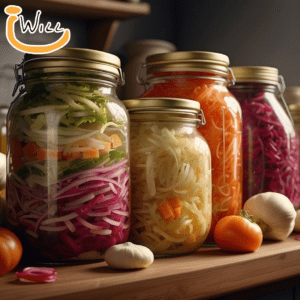
The Role of Fermented Vegetables
Fermented vegetables, like kimchi, sauerkraut, and pickled cucumbers, are not only tangy and flavorful but also provide a wealth of health benefits.
The fermentation process enriches vegetables with probiotics, beneficial bacteria that support gut health and digestion.
A healthy gut is linked to improved immunity, better digestion, and even enhanced mental health—key components of vitality.
Fermented vegetables are also easier to digest because the fermentation process breaks down some of the tough fibers and sugars, making nutrients more bioavailable.
Incorporating small amounts of fermented veggies into your diet can provide a unique vitality boost, particularly for your digestive and immune systems.
Seasonal Eating: Vitality from Fresh, Local Vegetables
Eating seasonally offers numerous benefits, both for your health and for the environment.
Seasonal vegetables are often more nutrient-dense because they are harvested at their peak ripeness, which means they contain the maximum amount of vitamins, minerals, and antioxidants.
Locally sourced, seasonal vegetables are also fresher, as they spend less time in transit and on grocery store shelves. This not only supports local farmers but also ensures that you’re getting the best-tasting and most nutrient-rich produce possible.
Seasonal eating can help reduce your carbon footprint, making it a sustainable choice for both your vitality and the planet.
Superfood Veggies: What Are They?
Superfood vegetables are those that pack an extra punch of nutrients and health benefits, earning them their “super” status. These nutrient-dense vitality boosters are typically rich in antioxidants, vitamins, minerals, and phytochemicals that have been shown to support overall health and vitality.
Some of the top superfood veggies include:
- Kale: Rich in vitamins A, C, and K, plus calcium, kale supports bone health, immunity, and skin vitality.
- Spinach: High in iron, magnesium, and folate, spinach is great for energy production and preventing fatigue.
- Broccoli: Loaded with vitamin C and sulforaphane, a compound that helps detoxify the body and prevent cancer.
- Sweet Potatoes: A great source of beta-carotene, fiber, and potassium, which supports heart health and vision.
- Beets: Known for improving blood flow and enhancing endurance, beets are a favorite for athletes.
Incorporating these superfood veggies into your diet regularly can help provide an extra vitality boost, supporting everything from energy levels to immune function.
The Link Between Gut Health and Vitality
Your gut health is closely tied to your overall vitality, influencing everything from your immune system to your energy levels.
The gut microbiome, the ecosystem of bacteria living in your digestive tract, plays a crucial role in nutrient absorption, digestion, and immune defense.
Vegetables are essential for maintaining a healthy gut microbiome because they provide both fiber and prebiotics, which feed the beneficial bacteria in your gut.
Some of the best vegetables for gut health include:
- Asparagus: A great source of prebiotic fiber, which feeds healthy gut bacteria.
- Garlic and onions: Both contain inulin, a type of prebiotic that promotes the growth of beneficial bacteria.
- Artichokes: High in fiber and prebiotics, artichokes support digestion and gut health.
A healthy gut is essential for maintaining energy and vitality, as it ensures that your body is absorbing the nutrients it needs to function optimally.
Veggies for Skin Vitality
The appearance of your skin is often a reflection of your internal health.
Vegetables, acting as vitality boosters, are rich in antioxidants, vitamins, and water content that can help keep your skin looking vibrant, youthful, and radiant.
- Carrots and sweet potatoes: High in beta-carotene, which the body converts to vitamin A, these veggies help protect the skin from sun damage and promote a healthy complexion.
- Cucumbers and zucchini: Their high water content helps keep the skin hydrated and supple.
- Spinach and other leafy greens: Rich in vitamin C and other antioxidants, these greens help promote collagen production, reducing wrinkles and keeping skin firm.
By including a variety of skin-friendly vegetables in your diet, you can support healthy, glowing skin from the inside out.
Can Veggies Help with Weight Loss and Energy?
Absolutely! Vegetables are naturally low in calories and high in fiber, making them ideal for those looking to lose weight without sacrificing energy.
The fiber in vegetables helps keep you feeling full and satisfied, which can prevent overeating and reduce cravings for unhealthy foods.
Vegetables like leafy greens, broccoli, and cauliflower are particularly good for weight loss because they are nutrient-dense but low in calories.
The complex carbohydrates found in vegetables like sweet potatoes and beets provide a slow, steady release of energy, helping to maintain stamina and prevent energy crashes.
Incorporating more vegetables into your meals is a simple and effective way to lose weight while keeping your energy levels high throughout the day.
Top Veggies for Active Lifestyles
For those with active or physically demanding lifestyles, certain vegetables can serve as potent vitality boosters, providing the extra energy and recovery support needed to maintain peak performance.
Athletes and highly active individuals should focus on vegetables that provide:
- Complex carbohydrates for sustained energy (e.g., sweet potatoes, carrots, and beets).
- Iron-rich greens like spinach and kale to support oxygen delivery to muscles.
- Anti-inflammatory vegetables like broccoli and bell peppers to aid in recovery and reduce muscle soreness.
Adding these vegetables to your diet can help enhance endurance, speed recovery, and provide the sustained energy necessary for an active lifestyle.
The Environmental Vitality of Vegetables
Eating more vegetables doesn’t just benefit your health—it also supports a healthier planet.
Vegetables have a much lower environmental impact compared to animal-based foods, requiring less water, land, and energy to produce.
By choosing to eat more plant-based meals, you contribute to reducing greenhouse gas emissions, conserving water, and preserving natural habitats.
Additionally, growing your own vegetables at home or supporting local farms can further reduce the environmental impact, as it cuts down on transportation and packaging waste.
Embracing a vegetable-rich diet is not only beneficial for your vitality but also for the planet’s vitality.
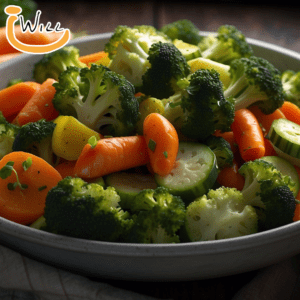
Conclusion
Vegetables are nature’s vitality boosters, offering an array of essential nutrients, antioxidants, and health-promoting compounds that support energy, immunity, mental clarity, and overall well-being.
By making vegetables a central part of your diet, you can unlock a natural, sustainable source of vitality that fuels both your body and mind.
Whether you’re eating leafy greens, vibrant root vegetables, or antioxidant-rich cruciferous varieties, these powerhouse foods will help you thrive.
FAQs
Yes, vegetables, especially when combined with whole grains, legumes, and healthy fats, can provide sufficient energy for most people, including those with active lifestyles.
Are there specific vegetables that boost mental clarity?
Yes, leafy greens like spinach, kale, and avocados are great for brain health, as they are rich in antioxidants and healthy fats that support cognitive function.
How do vegetables help improve gut health?
Vegetables are high in fiber and prebiotics, which feed beneficial bacteria in the gut, improving digestion, nutrient absorption, and immune health.
Is it better to eat raw or cooked vegetables for maximum health benefits?
Both raw and cooked vegetables have unique benefits. Eating a mix of both ensures you get the most nutrients and health benefits.
Which vegetables are best for boosting the immune system?
Vegetables rich in vitamin C, like bell peppers and broccoli, and those with immune-boosting antioxidants, like garlic and spinach, are excellent for immune support.
Can eating more vegetables help with skin vitality?
Yes, vegetables rich in antioxidants, water, and vitamins (like vitamin C and A) can help improve skin hydration, reduce wrinkles, and promote a healthy glow.
The I Will Projects, a 501c3 Non-Profit, promotes diverse solutions for global challenges. Our IFIZ education programs, emphasizing aquaponics, and insect farming, empower communities through knowledge, collaboration, and sustainable innovation.
Disclaimer: This blog post provides general health and nutritional information. The author is not a medical professional, and the content should not be used as a substitute for professional medical advice, diagnosis, or treatment. Any application of the material provided is at the reader’s discretion and is their sole responsibility. If you have a medical concern or emergency, please consult with a healthcare provider.





